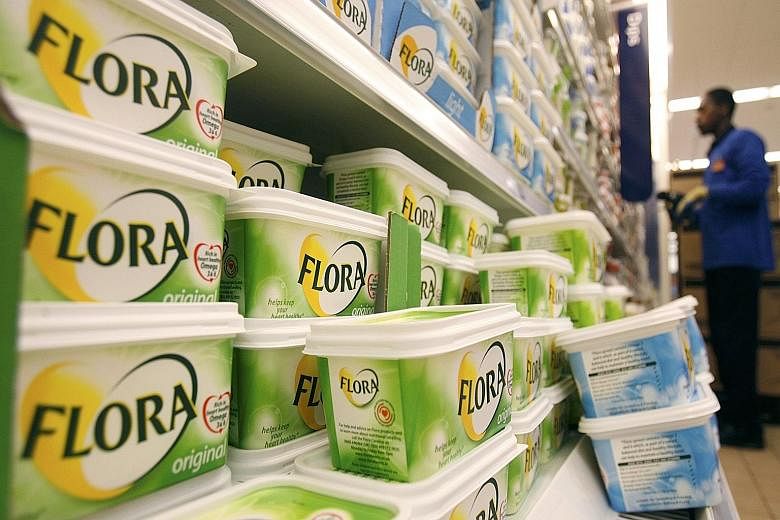The world's largest food and drink companies still have a long way to go to participate fully in the global fight against the twin scourges of obesity and undernutrition, a new report claims.
The global access to nutrition index 2016 - which scores 22 leading multinational firms on corporate strategy, availability of appropriate, affordable and accessible products, and positive influence on consumer choice and behaviour - notes that while some have taken steps to address the worldwide nutrition crisis, the industry as a whole is "moving far too slowly".
Unilever tops the rankings, receiving an overall score of 6.4 out of 10, followed by Nestle at 5.9 and Danone on 4.9 points.
Also in the top 10 are Mondelez (4.3), Mars (3.8), Grupo Bimbo (3.6), PepsiCo (3.6), FrieslandCampina (2.8), Ferrero (2.6) and Kellogg's (2.5). Coca-Cola comes in 12th on 2.4, Ajinomoto 15th (1.7), while Kraft is 18th on 0.8 and Heinz 19th on 0.3.
Mars and Dutch dairy company FrieslandCampina show the highest rises since the 2013 index.
With almost two billion people worldwide overweight - 600 million of them obese - and 800 million lacking enough to eat, with another two billion suffering from the "hidden hunger" of undernutrition, the report calls for concerted action from industry, governments and civil society.
"Companies have a long way to go if they are to play their full part in tackling the global nutrition crisis," it says. "Some companies have given health and nutrition issues increased weight in their corporate strategies; some have made commitments to improve the nutritional quality of some of their products; some have introduced more healthy options and some have adopted and established reasonably comprehensive back-of-pack labels."
Far less progress has been made on marketing responsibly to children, with "no measurable improvement". But the report does credit the leading firms, Unilever, Nestle and Danone, with doing more than their peers by building a "commendable" commitment to addressing global nutrition into their core business.
The index finds that the issue of undernutrition is being largely neglected by firms. It concedes that there are challenges in reaching out to undernourished consumers. However, it says firms have to take some responsibility for the huge problems that undernourished people face in finding healthy and affordable food, especially in less developed countries."Only four companies have initiatives to reformulate products for undernourished populations. This is particularly important for higher-risk developing markets among priority populations such as women of child-bearing age and children under two."
Ms Inge Kauer, executive director of the Access to Nutrition Foundation, said the world was facing a nutrition crisis that affects both developed and developing countries.
"The way people eat is fundamentally affected by the quantity and nutritional quality of processed food available and how it is marketed, priced and distributed, so any change in how firms operate can have a profound impact on people's eating habits and their health."
Unilever welcomed the news that it had topped the index. "We are extremely pleased to receive this independent recognition of our efforts to improve nutrition," said its president of foods, Ms Amanda Sourry. "We recognise more hard work is needed to embed nutrition in our global ambition to make sustainable living commonplace."
THE GUARDIAN

